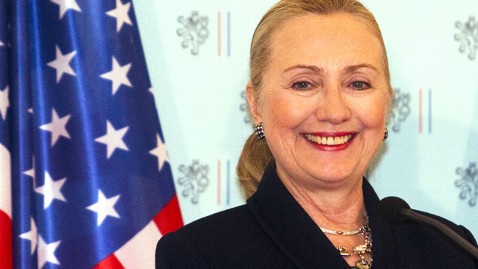Top House Republicans today opposed a bipartisan compromise that passed the Senate in the wee hours of New Year's Day to avert the "fiscal cliff," as new studies conclude that the compromise on taxes and spending would add trillions to the U.S. deficit.
If House Republicans tweak the legislation, as they seem likely to do, there's no clear path for its return to the Senate before a new Congress is sworn in Thursday.
GOP leaders emerged from a morning conference meeting disenchanted by the legislative package devised by Senate Minority Leader Mitch McConnell and Vice President Biden early this morning, with several insisting they cannot vote on it as it now stands.
"I do not support the bill," House Majority Leader Eric Cantor, R-Va., said as he left the meeting. "We're looking for the best path forward. No decisions have been made yet."
It's almost certain that Republicans will attempt to amend the bill in order to win over the support of more conservatives.
House Speaker John Boehner refused to comment on the meeting, but his spokesman said "the lack of spending cuts in the Senate bill was a universal concern amongst members in today's meeting."
"Conversations with members will continue throughout the afternoon on the path forward," Brendan Buck said in a statement.
As lawmakers wrestled with the legislation, the Joint Committee on Taxation and the Congressional Budget Office, two bipartisan groups that evaluate the cost of bills, said the measure would add roughly $4 trillion to the federal deficit in the next 10 years.
Bill Clark/Roll Call/Getty Images
Fiscal Cliff Countdown: Missing the Deadline Watch Video
Obama on Fiscal Cliff: 'Agreement Within Sight' Watch Video
The impasse once again raised the specter of sweeping tax hikes on all Americans and deep spending cuts' taking effect later this week.
"This is all about time, and it's about time that we brought this to the floor," House Minority Leader Nancy Pelosi said after emerging from a meeting with Democrats.
"It was a bill that was passed in the U.S. senate 89-8. Tell me when you've had that on a measure as controversial as this?" she said of the overwhelming vote.
Pelosi could not say, however, whether the measure had the backing of most House Democrats. "Our members are making their decisions now," she said.
Biden, who brokered the deal with McConnell, joined Democrats for a midday meeting on Capitol Hill seeking to shore up support for the plan.
While Congress technically missed the midnight Dec. 31 deadline to avert the so-called cliff, both sides have expressed eagerness to enact a post-facto fix before Americans go back to work and the stock market opens Wednesday.
"This may take a little while but, honestly, I would argue we should vote on it today," said Rep. Tom Cole, R-Okla., who sits on the Budget Committee. "We know the essential details and I think putting this thing to bed before the markets is important.
"We ought to take this deal right now and we'll live to fight another day, and it is coming very soon on the spending front."
The Senate passed legislation shortly after 2 a.m. that would extend current tax rates on 98 percent of Americans, raise taxes on the wealthiest earners and delay by two months the pending automatic spending cuts to defense and domestic programs, known as the "sequester."
The measure passed by an overwhelming majority vote of 89-8, boosting the prospects that enough House members would follow suit to make it law.
If the House amends the bill, however, the fragile compromise could get shattered. The Senate would need to reconvene to consider the changes.
A Senate Democratic leadership aide told ABC News, "we did our work, and McConnell's office said they were confident of House passage. All bets are off if they amend our bill."
Meanwhile, most Senators have already returned home, dismissed early this morning by Majority Leader Sen. Harry Reid.
"I've said all along our most important priority is protecting middle-class Americans, this legislation does that," Senate Majority Leader Harry Reid, D-Nev., said early this morning prior to the vote.
 iPhone, iPad and Mac are trademarks of Apple Inc., registered in the U.S. and other countries. App Store is a service mark of Apple Inc.
iPhone, iPad and Mac are trademarks of Apple Inc., registered in the U.S. and other countries. App Store is a service mark of Apple Inc.











